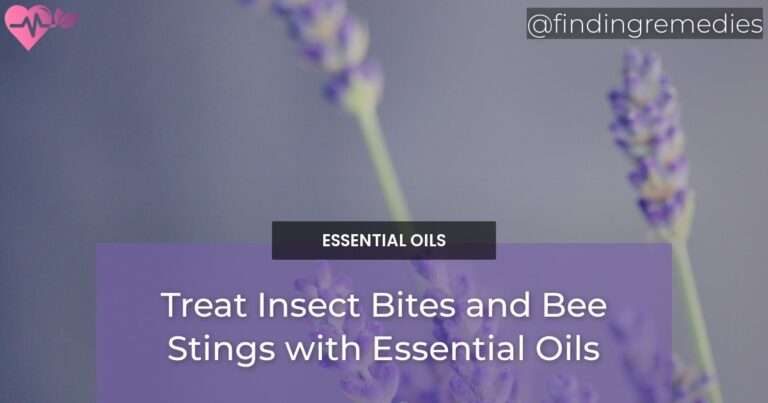Essential oils have been used for centuries for their various therapeutic properties, including their ability to soothe and heal. When it comes to treating insect bites and bee stings, essential oils can be a natural and effective remedy. If you’re tired of relying on chemical-laden creams and ointments, it’s time to explore the world of essential oils.
In this comprehensive article, we will delve into the benefits of using essential oils for insect bites and bee stings. From lavender and tea tree to basil and clove, we will explore the different oils that can provide relief. We will discuss their anti-inflammatory, analgesic, and antimicrobial properties, as well as tips on how to use them safely. So, let’s dive in and discover the power of essential oils in treating insect bites and bee stings!
Table of Contents
The Benefits of Lavender Essential Oil
Lavender essential oil is widely known for its calming and soothing effects. Not only does it have a pleasant aroma, but it also possesses incredible healing properties. When applied to insect bites and bee stings, lavender essential oil can help reduce inflammation and relieve pain and itching. Its antiseptic properties also help prevent infection. To use lavender essential oil, simply dilute a few drops in a carrier oil like coconut oil and apply it directly to the affected area. Alternatively, you can mix a few drops of lavender oil with water in a spray bottle and spritz it onto the bite or sting. Reapply as needed.
Tea Tree Essential Oil: Nature’s Antiseptic
Tea tree essential oil is renowned for its powerful antiseptic and antimicrobial properties. It can help prevent infection and promote healing when applied to insect bites and bee stings. Tea tree oil also has anti-inflammatory properties, which can help reduce swelling and redness. To use tea tree essential oil, mix a few drops with a carrier oil and apply it directly to the affected area. You can also add a few drops to a warm bath to soothe multiple bites or stings. Remember to perform a patch test before using tea tree oil, as some individuals may be sensitive to it.
Basil Essential Oil: A Natural Analgesic
Basil essential oil is not only a delicious herb for cooking but also a potent remedy for insect bites and bee stings. It contains compounds with analgesic properties, which can help alleviate pain and discomfort. Basil oil also has antibacterial properties that can prevent infection. To use basil essential oil, dilute a few drops in a carrier oil and apply it directly to the affected area. Alternatively, you can crush fresh basil leaves and apply them directly to the bite or sting for immediate relief.
Clove Essential Oil: Nature’s Anesthetic
Clove essential oil has been used for centuries for its numbing and anesthetic properties. It contains eugenol, a compound that acts as a natural pain reliever. Applying clove essential oil to insect bites and bee stings can help reduce pain and itching. However, clove oil is potent and should be used sparingly. Always dilute a few drops in a carrier oil before applying it to the skin. If you don’t have a carrier oil, you can also mix a few drops of clove oil with water to create a soothing compress.
Thyme Essential Oil: Powerful Antimicrobial
Thyme essential oil is a powerful antimicrobial agent that can help prevent infection in insect bites and bee stings. Its strong antiseptic properties can also promote healing and reduce inflammation. To use thyme essential oil, dilute a few drops in a carrier oil and apply it directly to the affected area. You can also add a few drops to a cool compress and apply it to the bite or sting for immediate relief. Thyme oil blends well with other essential oils like lavender and tea tree, making it a versatile option in your natural first aid kit.
Peppermint Essential Oil: Cool and Soothing
Peppermint essential oil is known for its cooling and soothing effects. When applied to insect bites and bee stings, it can provide instant relief from itching and irritation. Peppermint oil also has mild analgesic properties, which can help reduce pain. To use peppermint essential oil, dilute a few drops in a carrier oil and apply it to the affected area. Avoid using peppermint oil on broken skin, as it may cause a burning sensation. If you experience any adverse reactions, discontinue use immediately.
When it comes to treating insect bites and bee stings, essential oils can be a natural and effective solution. From lavender and tea tree to basil and clove, each oil brings its unique set of benefits. Remember to always perform a patch test and dilute essential oils before applying them to your skin. If symptoms worsen or persist, consult a healthcare professional. With the power of essential oils, you can find relief from the discomfort of insect bites and bee stings while embracing a natural approach to healing.

